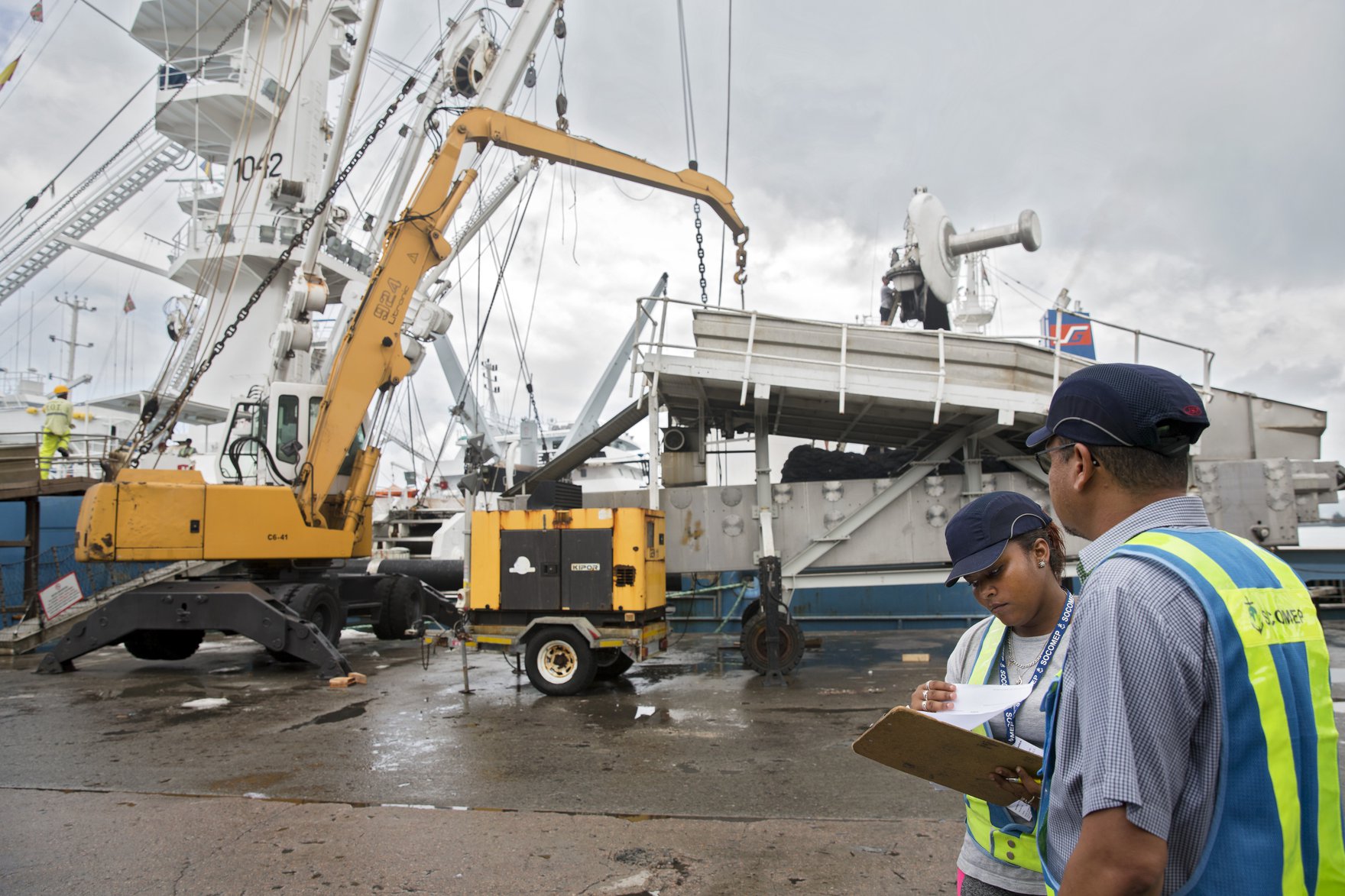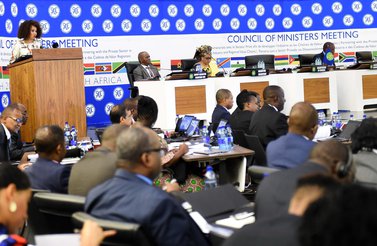In an era of uneasy retreat from global trade commitments, and in the face of mounting trade tensions, attention has shifted to the historic African Continental Free Trade Agreement (AfCFTA). Launched at the African Union (AU) Summit in Niamey, Niger, on July 7, 2019, the AfCFTA creates the world’s largest free trade area, with a market of more than 1.2 billion people and a combined GDP of US$2.5 trillion. As part of the AfCFTA, AU member states committed to remove tariffs on 90 percent of goods, progressively liberalize trade in services, address non-tariff barriers (NTBs) to intra-regional trade, and eventually create a single continental market for goods and services, with free movement of labour and capital. Widely embraced as more than a free trade area, the AfCFTA marks a distinct turning point in Africa’s economic development trajectory, in line with the enduring pan-African vision of a united Africa.
Grounded in deep expectation, the AfCFTA will only live up to its potential if the benefits from intracontinental trade are inclusive and if it leaves no one behind. Across the continent, women are marginalized and disproportionately among those left behind. Entrenched gender inequalities are pervasive across economic, social and environmental spheres, militating against inclusive, just and sustainable development in African countries. The AfCFTA does not incorporate a separate chapter on trade and gender. The preamble of the agreement, however, contains explicit reference to the importance of gender equality for the development of international trade and economic cooperation, and article 3(e) emphasizes the promotion of gender equality as one of the general objectives of the AfCFTA. These provisions should not be dismissed as mere aspiration. The deliberate decision to enshrine gender equality in the AfCFTA is recognition of its profound impact — both as a human rights and an economic imperative.
Grounded in deep expectation, the AfCFTA will only live up to its potential if the benefits from intracontinental trade are inclusive and if it leaves no one behind.
Through other key provisions in the AfCFTA, including, inter alia, on trade facilitation, NTBs, customs cooperation, and sanitary and phytosanitary measures, the AfCFTA can enhance economic opportunities for women-owned businesses and for informal cross-border traders. While not directed specifically at women, ensuring that context-specific challenges faced by women are addressed in the implementation of these and other provisions will support the ability of female traders, entrepreneurs and producers to respond to new trade opportunities created by the AfCFTA.
The successful implementation of the AfCFTA can advance the economic empowerment of women in priority sectors and value chains across African countries. In the agricultural sector, for example, the AfCFTA can provide expanded markets for exports, as well as opportunities for women to integrate into agricultural regional value chains, value-added agro-processing and other upstream and downstream activities. Moreover, in spurring industrialization and economic diversification, the AfCFTA can give renewed impetus to women’s manufacturing and wage employment in both labour-intensive and capital-intensive manufacturing industries. There are also considerable opportunities for women to progress from low-skilled activities to medium- and higher-skilled activities, as part of liberalization of trade in services under the AfCFTA.
Likewise, a large free trade area brings entrepreneurship and economic opportunities for women-owned small and medium formal sector enterprises, as well as for microenterprises in the informal sector. Through the creation of regional value chains, larger firms that export can source suppliers from among smaller women-owned businesses across borders. The recently launched AfCFTA NTB mechanism can further promote gender-inclusive trade for female entrepreneurs in the formal and informal sector, as well as for informal cross-border traders — the majority of whom are women. Similarly, the introduction of a Continental Simplified Trade Regime will be particularly important for extending the benefits of expanded trade to informal cross-border traders.
Notwithstanding numerous provisions in the AfCFTA that can bring significant benefits for women, these benefits are not automatic. Indeed, intra-African trade liberalization could exacerbate existing gender gaps if the necessary steps are not taken to prevent — or alleviate — potential adverse effects arising from AfCFTA market liberalization. Ensuring that women leverage the transformative potential of intra-African trade expansion requires the design and implementation of gender-sensitive trade policies, buttressed with context-specific complementary measures that are grounded in evidence. As African countries prepare to implement the AfCFTA, the Economic Commission for Africa is supporting the development of AfCFTA national implementation strategies.
Central to this process is the mainstreaming of gender — adopted as a priority strategy to advance gender equality under the AfCFTA Agreement. Gender mainstreaming in AfCFTA national implementation strategies requires a comprehensive understanding of the different groups and various roles women play in the economy — this includes analyzing the gender dynamics for female traders and entrepreneurs in the informal and formal economy. Also required is an in-depth understanding of the various sectors where women are concentrated, including in the traditional female-intensive sectors of agriculture, manufacturing and services, as well as in non-traditional industrial and trade sectors with the potential to emerge as major growth drivers.
Part of the gender mainstreaming process involves identifying sectors and products with high export potential, as well as regional value chains with positive socio-economic impact, and assessing new economic opportunities to catalyze women’s entrepreneurship and empowerment. Gender-disaggregated data and information — both quantitative and qualitative — will inform targeted gender analysis. Such analysis is necessary to highlight binding constraints that limit women’s productivity and full inclusion in key sectors, with a view to identifying a mix of transformative interventions and support for women to confront the challenges and leverage the opportunities of an integrated continental market.
To maximize the benefits of the AfCFTA, women must adapt. Gender mainstreaming can inform specific technical education, information and communication technology, and other skills development and training required for women to access higher-skilled jobs, enter supply chains and upgrade into higher-productivity activities under the AfCFTA. Of equal importance is the need for targeted sensitization on the AfCFTA, in particular for women to be able to participate meaningfully in policies and interventions that will impact their livelihoods and well-being.
Through gender mainstreaming in AfCFTA national implementation strategies, African countries can continue to build upon existing domestic, regional and global commitments to advance gender equality as an indivisible component of the AfCFTA Agreement. A systematic approach that seeks to ensure the full and equal participation of women in the AfCFTA can turn the transformative promise of Africa’s historic initiative into lasting progress for women.

